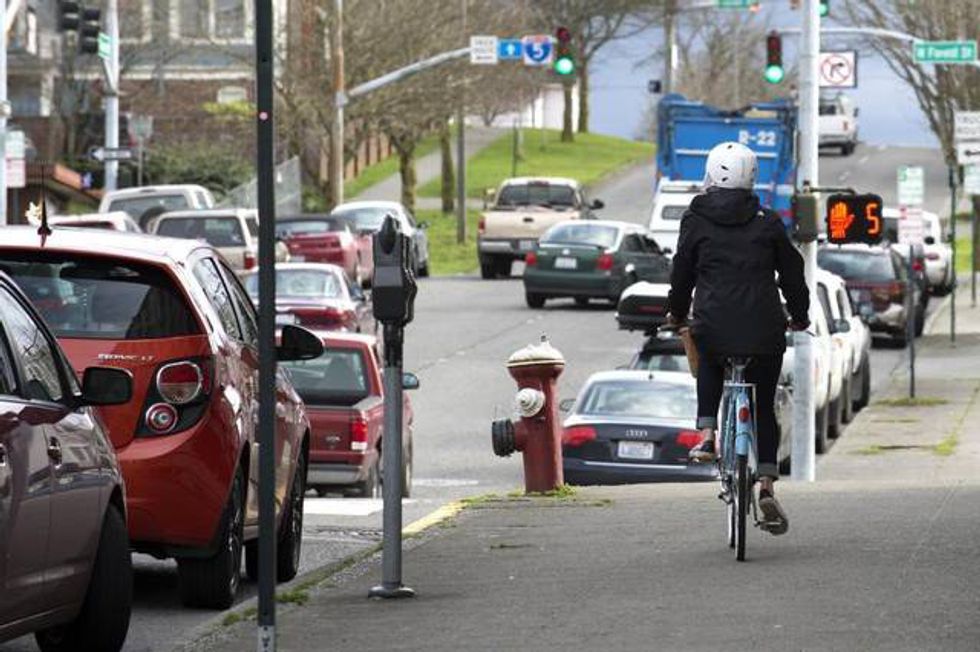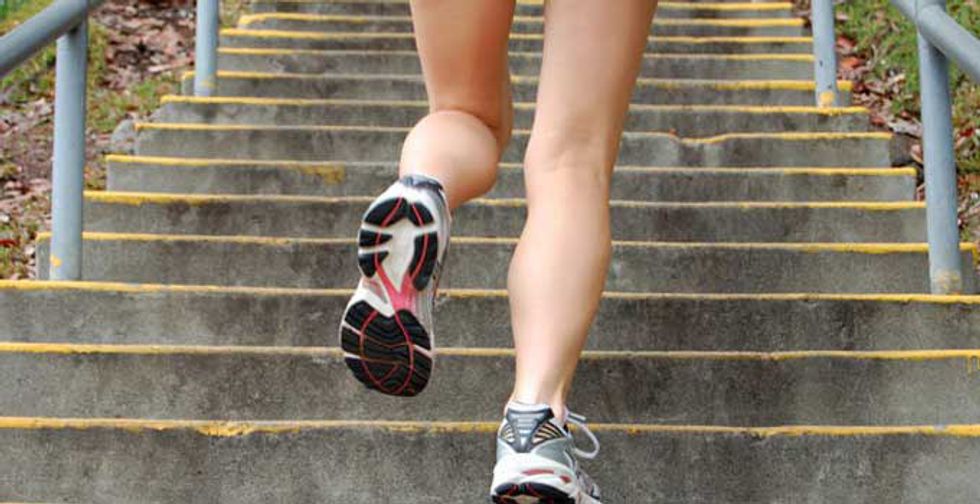As humans, it is imperative that we are aware of how we are treating this beautiful, blue and green planet that we all call "home." If we continue to glide obliviously through life, selfishly devouring nonrenewable resources and inadvertently increasing greenhouse gas emissions, with no regard for or awareness of the damage that we are causing to our home, then we are harming all other living organisms, increasing the rate of global warming, and ultimately, destroying the planet-our planet. As a society, we must collectively be conscientious of how the decisions we are making at this exact moment will shape the world and set the tone for the future generations of people who will inhibit the very same planet we are so fortunate to be living on. Here are 16 simple ways that you can begin reducing your carbon footprint right now.
1. Walk or ride a bike to get to your destination.
Save gas, sneak in a workout, and enjoy the fresh air by walking or biking as an alternative to driving a car.
2. Carpool.
Benefits include saving gas and enjoying a ride with a friend or two...
3. Take advantage of natural lighting.
Open a window to light the room.
4. When electrical appliances are not in use, unplug them.
5. Use the stairs instead of the elevator.
You'll be conserving energy and burning extra calories by taking the stairs in place of riding the elevator to get to where you need to be.
6. Only print what you need.
7. Do not leave your computer on all day.
8. Stop drinking bottled water.
Use a water filtering system to fill your own reusable water bottles.
9. Follow a vegan diet.
Switching to a diet free of meat, dairy, and eggs will reduce the number of carbon emissions in the environment. If, as a society, we collectively consumed fewer animals, we would preserve precious resources such as the land used for grazing and growing feed crops along with the conservation of large amounts of water and grain that are consumed by the animals.
10. Eat locally-produced, organic food.
Help cut the costs of transportation and packaging that are associated with factory-farmed foods originating from great distances and support locally grown produce for a healthier (and tastier!) choice.
11. Take shorter showers.
Other than conserving water, decreasing the frequency that you shower and shortening the length of each shower will reduce carbon dioxide emissions and the energy necessary to heat the water . Furthermore, do not overuse shampoo and body wash as this will lead to more chemicals that need to be filtered out of the water system which will take excess energy.
12. Use tote bags as an alternative to the plastic bags from the store.
Look stylish carrying home your groceries while you reduce the use of plastic bags.
13. Donate or sell unwanted items rather than throwing them away.
One person's trash is another person's treasure.
14. Change to energy efficient light bulbs.
Compact fluorescent light bulbs use 50-80% less energy than incandescent light bulbs and also last up to 10 times longer.





































